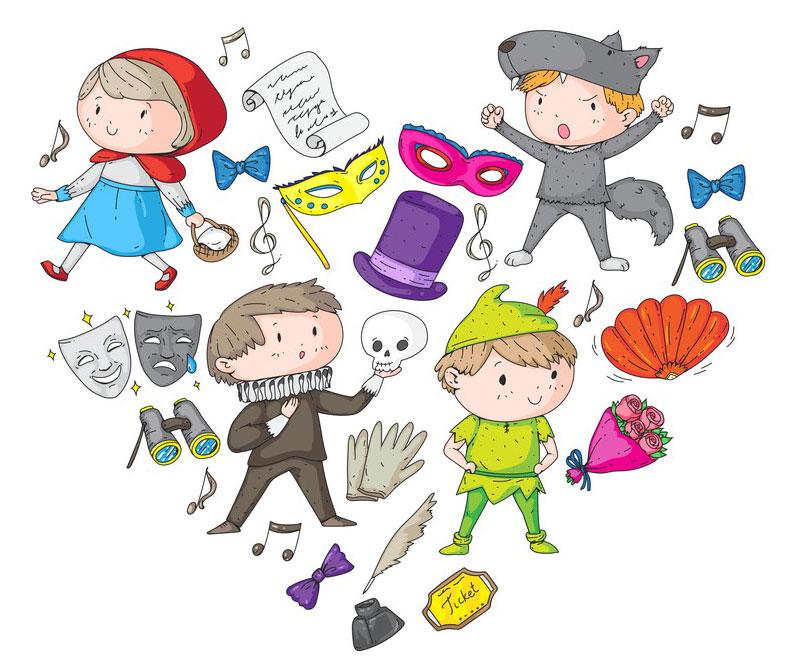Shakespeare in Education Research Group – Research – Department of Teacher Education
ShINE: Shakespeare in Education Research Group

The Shakespeare in Education Research Group (ShINE) seeks to consider the innovative ways educators encourage students to learn from Shakespeare and his language, and to interrogate how Shakespeare remains a resource for language learning across Scandinavia and Europe. William Shakespeare’s works represent an unequalled teaching resource for English language and culture, and his influence on world literatures, theatre, and film studies is unparalleled. Across languages and forms of media, students gain cultural understanding through references, images, and quotations from Shakespeare, and this generates a valuable touchstone for teaching literature and theatre, and from there to encouraging critical thinking, artistic expression, language, and communication.
The group hopes to include educators, performers, and researchers collaborating in an active forum to integrate practice, method, and literary research. We generate new research through dialogues over resources, experiences, challenges, using translations and adaptations, and teaching through performance in order to investigate ways of encouraging a wider use of Shakespeare at all education-, skill-, language-, and age-levels.
Research Areas
- Fear Factor: Dealing with resistance to Shakespeare’s language in teachers and students.
- Shakespeare in Adaptation and Translation: Film, graphic novels, animation.
- Shakespeare through Performance: Live Theatre, Student Performance, Digital Theatre (i.e. The Globe Theatre’s “Globe on Screen” program broadcasting The Shakespeare’s Globe (London, UK) performances in world-wide cinemas.
- Shakespeare in the Multicultural and Multilingual classroom.
- Shakespeare Modernized or Simplified: Shakespeare picture books, adaptations for younger, or less-skilled, readers (i.e. No-Fear Shakespeare, Simply Shakespeare, The Orchard Books of Shakespeare Stories, or Shakespeare Can Be Fun!)
- Shakespearean Influences: Introducing Shakespeare and his writings through references in contemporary popular culture.
- Unspoken Shakespeare: Silent Film, Music, Dance
Activities and Publications
Journal Articles
- Brataas, Delilah Bermudez. (2017) “The Alternating Utopic Revisions of The Tempest on Film.” Shakespeare on Screen: The Tempest and the Late Romances Cambridge University Press.
- Brataas, Delilah Bermudez. (2018) “The Shadow’s Shadow, or Gendered Ambition in Asta Nielsen’s 1921 Hamlet.” Cahiers Élisabéthains: A Journal of English Renaissance Studies. 98(1).
- Special Issue: Shakespeare in\and Education, Winter 2019, Volume 7, in the Journal Early Modern Culture Online.
- Brataas, Delilah Bermudez (2020) “Gods and Monsters: Authorial Creation in Gaiman’s Sandman and McCreery and Del Col’s Kill Shakespeare.” Journal of Graphic Novels and Comics.
- Brataas, Delilah Bermudez (2023) “Echoes and Enclosures, or Utopia in Love’s Labour’s Lost” in Shakespeare / Nature Contemporary Readings in the Human and Nonhuman. Bloomsbury Academic.
- Brataas, Delilah Bermudez. “Affecting the Anguish of Youth in Film Adaptations of Romeo and Juliet” Forthcoming in Shakespeare on Screen: Romeo and Juliet, Cambridge University Press, Forthcoming Autumn 2023.
- Special Issue: Shakespeare and Utopia in the journal Multicultural Shakespeare, Forthcoming in Autumn 2023.
Seminar Series: International Margaret Cavendish Seminar Series, June 2019
- Forty scholars from 14 nations presented research on literature, philosophy, history of science, and visual arts.
- Keynote Speaker: Scholar and Novelist Siri Hustvedt, author of The Blazing World (2014).
Upcoming Activity
- International Exchange Project under Development: Performing Utopia in the North: Shakespeare in Education, Translation and Adaptation (PUNSETA)
- Shakespeare in Scandinavia, Performance Database with the Nordic Shakespeare Society
- PhD Project: Drama in Education, PhD Student Ann Elise Albertsen
External members of research group
- Anna Kowalcze-Pawlik, The University of Łódź. Email: anna.kowalcze@uni.lodz.pl
- Kiki Lindell, Lund University
- Associate professor Svenn-Arve Myklebost, Inland Norway University of Applied Sciences
- Christine Sandhaug, Inland Norway University of Applied Sciences
